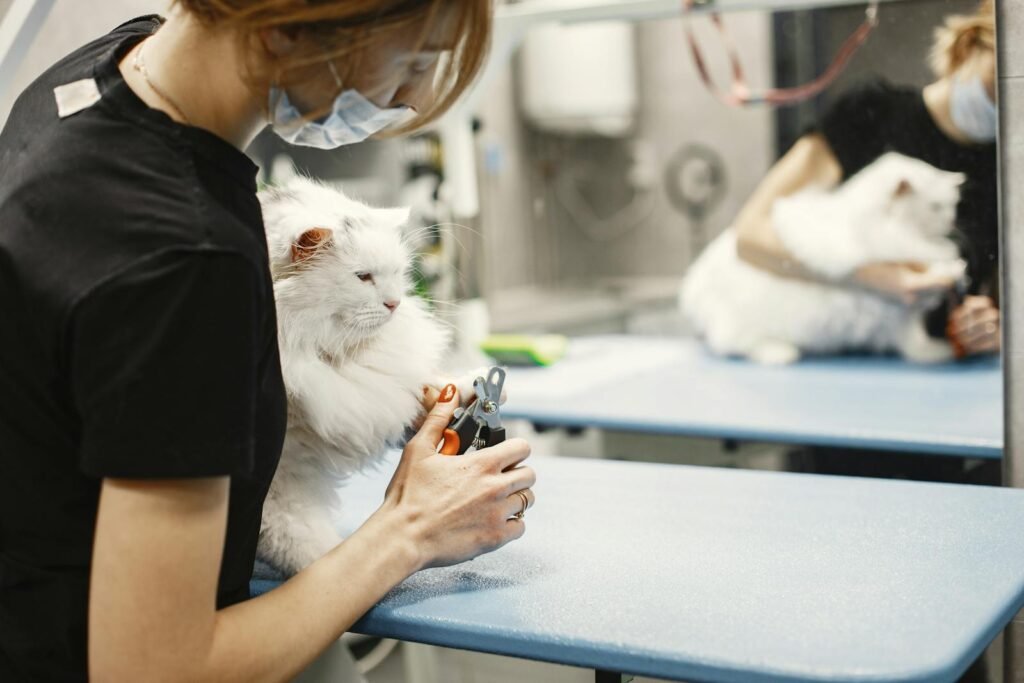Welcoming a cat into your home can be an exciting and rewarding experience. These furry companions bring joy, comfort, and sometimes a bit of chaos into our lives. However, becoming a first-time cat owner can also be a bit overwhelming if you’re not prepared. There are several aspects of cat care and behavior that are crucial to understand to ensure a happy and healthy relationship with your new feline friend. Let’s dive into the essential things every first-time cat owner should know.
Understanding Cat Behavior
Cats are complex creatures with unique personalities and habits. Understanding their behavior is key to building a strong bond. Cats communicate through body language, so pay attention to their tail movements, ear positions, and vocalizations. A flicking tail may indicate irritation, while a purring cat is often content. Be patient as your cat adjusts to its new environment; it may take time for them to feel comfortable and secure. Remember, each cat is different, and learning to read their signals will make your life together much smoother.
The Importance of Regular Vet Visits

Just like humans, cats need regular check-ups to stay healthy. Scheduling annual vet visits is essential to monitor their health, update vaccinations, and catch any potential issues early. A veterinarian can also guide you on proper nutrition, flea prevention, and dental care. Early detection of health problems can save you from costly treatments and ensure your cat lives a long, happy life. Keep your vet’s contact information handy for emergencies, and don’t hesitate to reach out if you have any concerns about your cat’s well-being.
Nutritional Needs and Diet
Feeding your cat a balanced diet is crucial for their overall health. Cats are obligate carnivores, meaning they require a diet rich in animal protein. Choose high-quality commercial cat food that meets their nutritional needs, and avoid feeding them dog food, as it lacks essential nutrients like taurine. Fresh water should always be available, and portion control is important to prevent obesity. Consult your vet for recommendations on the best food for your cat’s age, weight, and health status, and avoid giving them human food, which can be harmful.
Litter Box Setup and Maintenance
A clean litter box is essential for a happy cat. Place the litter box in a quiet, easily accessible location, away from food and water. Scoop it daily to maintain cleanliness and change the litter regularly to prevent odors. Most cats prefer unscented, clumping litter, but you may need to experiment to find the type your cat likes best. If your cat is avoiding the litter box, it could be a sign of stress or a medical issue, so it’s important to address any changes in behavior promptly.
Grooming and Coat Care
Regular grooming is important for your cat’s health and comfort, especially if they have long hair. Brushing your cat helps reduce shedding and hairballs and can be a bonding experience. Cats are generally good at grooming themselves, but they may need occasional baths if they get into something messy. Additionally, keep their claws trimmed to prevent them from becoming too sharp and causing injury. Introduce grooming gradually, rewarding your cat with treats to make the experience positive.
Creating a Safe Environment
Cats are curious by nature and love to explore their surroundings. Ensure your home is a safe environment by removing hazards like toxic plants, small objects they could swallow, and open windows without screens. Secure electrical cords and keep cleaning supplies out of reach. Providing scratching posts and interactive toys can help satisfy your cat’s curiosity and prevent them from getting into trouble. Cats love to climb, so consider adding shelves or a cat tree to give them a vertical space to explore.
Understanding and Managing Stress
Cats can be sensitive to changes in their environment, leading to stress. Moving, new pets, or changes in routine can all affect your cat’s well-being. Signs of stress include hiding, excessive grooming, and changes in eating or litter box habits. To help your cat adjust, maintain a consistent routine, provide plenty of attention, and create a calming environment with cozy hiding spots. If stress persists, consult your vet for advice on managing your cat’s anxiety.
Playtime and Exercise
Cats need regular playtime and exercise to stay healthy and happy. Interactive toys, like feather wands and laser pointers, can stimulate your cat’s natural hunting instincts and provide mental and physical exercise. Set aside time each day for play sessions to keep your cat engaged and prevent boredom. Remember, playtime is not just fun; it’s essential for your cat’s well-being, helping them burn off energy and maintain a healthy weight.
Socialization with Other Pets
Introducing your cat to other pets requires patience and care. Whether it’s another cat, a dog, or a small animal, gradual introductions are key. Start by allowing them to sniff each other’s scents through a closed door, then gradually allow supervised interactions. Always monitor their behavior and separate them if tensions arise. Positive reinforcement, such as treats and praise, can help facilitate a smooth introduction. Remember, each pet is unique, and it may take time for them to adjust.
Recognizing Health Issues
Being able to recognize the signs of illness in your cat is crucial for their well-being. Common symptoms of health issues include changes in appetite, vomiting, diarrhea, lethargy, and changes in litter box habits. If you notice any unusual behavior or symptoms, consult your vet promptly. Early detection and treatment can make a significant difference in your cat’s recovery and overall health. Stay informed about common feline health problems and be proactive in seeking veterinary care.
The Importance of Identification
Ensuring your cat is properly identified is essential for their safety. Microchipping is a reliable method of identification that can help reunite you with your cat if they get lost. Collars with ID tags are also beneficial, but ensure they have a safety release feature to prevent accidents. Keep your contact information up to date and consider registering your cat with a pet recovery service. Taking these precautions can provide peace of mind and increase the chances of finding your cat if they wander off.
Building a Strong Bond
Forming a strong bond with your cat is one of the most rewarding aspects of pet ownership. Spend quality time with your cat, offering affection and attention on their terms. Cats appreciate routine and consistency, so establish regular feeding and playtimes. Respect their space and allow them to come to you when they’re ready for interaction. Building trust takes time, but with patience and love, you’ll develop a deep connection with your feline friend that will last a lifetime.

Linnea is a born and bred Swede but spends as much time as possible in Cape Town, South Africa. This is mainly due to Cape Town’s extraordinary scenery, wildlife, and atmosphere (in other words, because Cape Town is heaven on earth.) That being said, Sweden’s majestic forests forever hold a special place in her heart. Linnea spends as much time as she can close to the ocean collecting sea shells or in the park admiring puppies.





